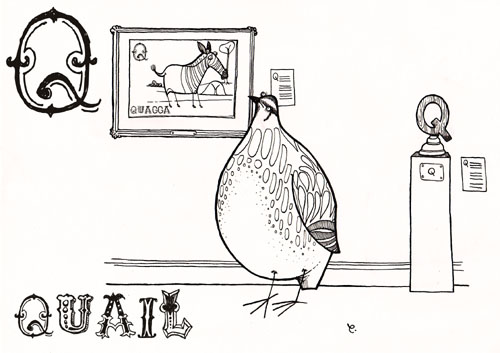I am pretty buff, as you well know. The reason for this is mowing the lawn. I have mowed acres and acres of grass in my lifetime and as such it makes me quite the expert in the fine art of swearing and complaining and, to a certain degree, mowing. As this is now the internet age and everyone is expecting everyone else to share all of their expertise, channel it into one great interactive repository of skills, I thought that I would commit my knowledge and experience to the ages.
There is something quite righteous about doing this. Like I am some kind of caveman elder. Come gather round people.
Tip 1: Know your enemy
Actually, that's a good place to start. Righteousness and tradition. The other day I was digging the vegetable beds a bit, doing some weeding and tending to my brassicas. There is something which feels so completely RIGHT about doing that. Primal. Fundamental. Tilling the soil to cultivating things to eat. It's what we human beings have done ever since we descended from the trees and headed straight to the garden centre.
Lawn mowing is very much
not one of these things. It's one of those prissy and futile things that human beings do to try and make things neat and tidy, to kid ourselves that we're the masters of our surroundings. This is a strategy that always works, at least until the first tsunami or earthquake or
giant snake arrives, spiriting your grandmother off and away to hither and yon. So my first top tip is: accept the futility of the action you're about to undertake. Embrace it. And swearing is very much par for the course. It's healthy! Even if it scares the neighbour's dog.
Tip 2: Hazards
There are all manner of pitfalls faced by the lawn mower, not least actual pits that you could fall into. However, these are rather less common than any of the following: trees; moss; ant hills; bees; frogs; brambles and other assorted bindweed; and, of course, fox turds. The key to all of this is to know every inch of your surface, like a golfer studying the green for a vital putt. When it all comes together, it can be quite beautiful - a balletic and rhythmic mastery of the elements. Swinging round that tree, pop a wheelie over the fox shit and give a tonsure to a passing bee.
Tip 3: Equipment
I'll be blunt, you're going to need a lawnmower. There are a number of main types: electric, petrol powered or hand-propelled. I favour the petrol-powered push mower. The petrol-powered remains a pipe dream and nothing but a pipe dream. Everyone should be relieved about that, as me in control of any type of motorised vehicle is a preposterous idea, let alone one with a rotary blade attached to it. People would
die. The electric mower is OK for smaller gardens but for anything even approaching reasonable sized, buggering about with power cables will drive you insane.
I currently use a Hayter mower. It is splendid and green. Previously I used a Mountfield, which was very much not. It had clearly been designed by someone who had only ever read about lawns in books and therefore had nothing beyond a theoretical understanding of them. At the merest sight of any organic matter, let alone grass, the thing went to pieces. The petrol tank didn't have a filter, so the engine soon became clogged with stones, earth and wasps. If the motor ran long enough to make it to the lawn, the blade was no match for what it was trying to cut. I lost years of my life to that thing. The Hayter mower is much better. I particularly like the fact it starts, cuts and works - although after the Mountfield experience, just
one of those would have set it apart.
One warning: evolution is always in action. The latest array of petrol-powered push mowers will usually be motor assisted: that is to say, the rear wheels are driven by a motor to help you push it along. Back in the day, this sort of extravagance was far beyond the dreams or budgets of plebs like me. But since it became pretty well standard on all but the most entry-level models, my muscles have evolved to be
completely useless without it. I even need rear-wheel drive on shopping trolleys nowadays. Evolution is the lawn mowing man's greatest foe, after cats, bees, frogs, ants and fox shit.
One other warning: no lawnmower has a good enough grass collection box. So don't even think about that. It's clearly impossible to design and will never going to happen. You're thinking about it, aren't you? Well don't. It's never, ever, going to happen. Lawnmowers are designed entirely to frustrate and annoy you. It's to emphasise the futility. Remember the futility?
Tip 4: Regularity
Alan Titchmarsh once told me, via the television, that you should mow the lawn once every 2 days during the growing season.
Hmm.
At best, I might manage once a week, but it's important to accept the fact that several times every year you will end up trying to mow something that looks like a Vietnam war film. You just are. The best advice is to know the wily ways of grass. Like everything else, it grows best when there's plenty of water and sun. A traditional British summer makes for a real bastard of a lawn. Blink and it will be as unkempt as a nun's beaver. Sometimes it will have all grown back by the time you've finished the other end.
If you're lucky enough to get a hot and dry spell, mow it plenty, as short as you can get it. This will render your lawn a sad, dusty and brown thing, virtually dead, which may not need further cutting for a month or more, even at the height of the growing season (which generally tends to be April to July).
5. Conclusions
You're never going to enjoy mowing your lawn. It is stupid and a complete waste of your time. So learn to accept that fact and relish its aching pointlessness. And, in an ideal world, learn to tarmac it.










